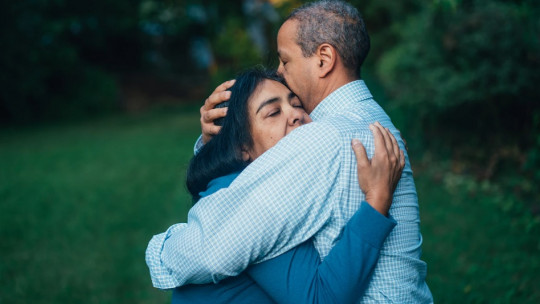
Have you ever thought about how sometimes we want to stop feeling a certain way and The more we struggle with it or think about it, the more we continue to feel the same or worse ?
This does not happen just because, and it has nothing to do with a lack of will or predisposition, it is rather related to the types of behaviors we have, with the things and activities we do and even with what we do not do.
The tendency to avoid suffering
Wanting to avoid suffering or discomfort by doing or not doing certain things is known as experiential avoidance and arises from the belief – if I avoid something that bothers me I will feel good – and if in fact, to a certain extent we will feel good. in a better way because we did not expose ourselves, but unconsciously we do not realize that by avoiding that discomfort we also avoid growth experiences and we are tied to not getting closer to what makes us so uncomfortable that in the long term it can distance me from my goals and objectives.
We have two ways to avoid this suffering and both lead us to the same result, I invite you to know them and recognize them if applicable, since being aware of this can be a great step to start building our well-being.
Active Avoidance
This type of avoidance consists of escaping from a situation to avoid danger and prevent discomfort or uncomfortable sensations, believing that we reduce suffering. For example: if our greatest fear is failure, then we will begin to constantly ask others if we are doing things right, without realizing that if at any time someone has a different opinion than us, it can generate a crisis or, in turn, the Most of the time, if not all, I will need to be accompanied by someone to make my own decisions.
passive avoidance
The second way is passive avoidance, which is a set of behaviors that distance us from unpleasant stimuli and thus do not expose our fear or insecurity. That is, if we are afraid of being robbed, I try all the time not to leave the house so as not to face danger, that is, not to expose myself.
How can we deal with this experiential avoidance?
The acceptation It is the first step, and I consider it to be the fundamental one, since in this way we break for the first time the cycle that, without meaning to, we have prolonged longer than we would have liked. This term is related to admitting, that is, being compassionate – with myself and with others – the fact of keeping in mind that I can win and lose, suffer or enjoy, as well as understanding that not everything is related. with the extremes, that there are also middle points and different points of view of the same situation; Keep all this in mind, especially identifying that things happen and that going through a negative or positive event is not the entirety of who you are.
For example: when failing a subject there can be an endless number of thoughts that lead me to the same point of not having passed said subject, acceptance allows us to understand that even if I have failed the subject, it is not functional for me to remain stagnant, but rather to be kind. with myself and continue, identify what my errors or defects were and identify how I can improve to solve this problem, unlike if we do not accept it we can postpone taking that subject again, which for the moment will be functional for us because we will not have We have to face the fear of not passing again, but at the end of the degree, if we do not take it we will not be able to achieve the goal of graduating.
The second point is related to being in the present moment, in other words, connect with the here and now, keeping in mind that I have an event that needs my attention or solution. This part allows us to understand that the present is the only place where I can act and begin to make a difference, and that anchoring to my past events or what can happen makes it more likely that we will repeat ineffective behaviors and judge ourselves for what we “should have done.” or we will have to do”, in the same way by being present in our reality (which is not always easy) we stop evading what is happening because we begin to be more aware of the actions we need to take to cope with what is happening. Phrases that can help us situate ourselves in our presents can be –Me here, me now.
The third and last point is commitment, taking this into account as understanding the importance of oneself in one’s personal process. This is one of the most difficult parts because it is related to allowing ourselves to experience pain and suffering, having behaviors that make us cope with situations or realizing that our suffering will not be eternal if we start doing different things. Thus, doing our part to do what helps us achieve our goals, no matter how difficult it may be, does not come entirely from professionals or techniques; it is also essential how committed we are to our well-being.
To better understand, let’s explain the following situation: if I find it difficult to understand English, the only way I can do it is by doing exercises, practicing lessons, exposing myself to what causes me so much conflict, even if I don’t like it and feel uncomfortable, if my objective is to learn that language, no matter how many resources they give me, if I do not allocate time to carry out that activity, I will not be able to learn English. The same thing happens with our thoughts and emotions, these are not going to change if I do not commit to doing something so that they change and transform.
This is why experiential avoidance is not a functional solution because sooner or later it will reappear in our daily lives, which is why starting to perform different actions, no matter how difficult they may seem, will give us the opportunity to face our greatest fears. and come to see the events that are happening to us in a calmer way, because we accept them, we connect with what is happening and we begin to face them or stop avoiding them.








